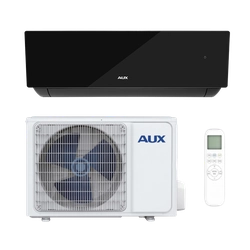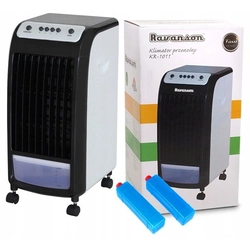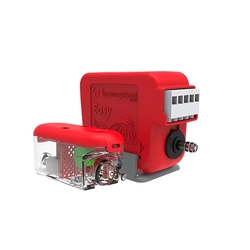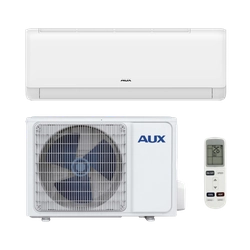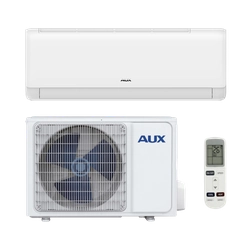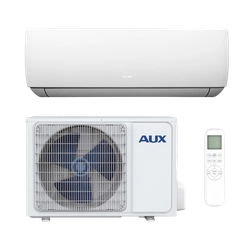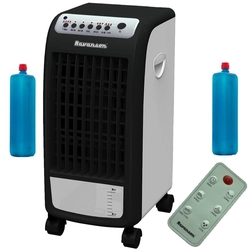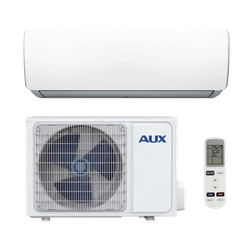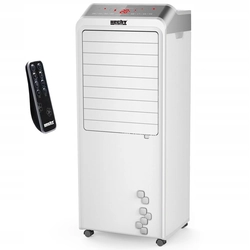
Air conditioning on merXu
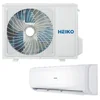
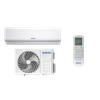
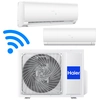
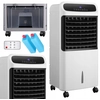
Increasingly common not long ago, air conditioning was considered a luxury good.
Today, air conditioning in an apartment or office no longer surprises anyone. Due to the increasingly higher temperatures in the summer, more and more people want to buy portable air conditioners or organize stationary air conditioning at home or in the workplace. It is worth taking advantage of this potential and presenting customers with the best solution in terms of air conditioning and presenting the advantages of air conditioning in both summer and winter.
Stationary devices, which work very efficiently but require installation and placement of equipment on a balcony or building wall, are usually found on the market. Every year, more manufacturers decide to introduce portable air conditioners to their offer, used in homes and offices. Their undoubted advantage is the possibility of using them in many rooms, depending on the needs. It gives certainty that the temperature in each of them can be adjusted according to the preferences of the people staying there. However, the power of action is much weaker than in the case of stationary devices. If we are talking about air conditioning for a building that is to be permanently in one place, it is better to invest in a stationary version.


RAVANSON KR-1011 AIR CONDITIONER PORTABLE AIR CONDITIONER 4in1 AIR CONDITIONER The newest Model 2021 OFFICIAL DISTRIBUTOR - RAVANSON AUTHORIZED DEALER

Non-acid condensate pump for conditioners Tecnosystemi, Mini Pump Easy Flow EF 11 l/h

AUX Q-Smart Plus air conditioner AUX-12QC 3,5 kW (KIT)

AUX Q-Smart Plus air conditioner AUX-18QC 5,4 kW (KIT)

AUX J-Smart air conditioner AUX-18J2O 5,3 kW (KIT)

RAVANSON KR-2011 AIR CONDITIONER PORTABLE AIR CONDITIONER 4in1 AIR CONDITIONER + PILOT - THE LATEST MODEL for 2021 - EWIMAX OFFICIAL DISTRIBUTOR - AUTHORIZED RAVANSON DEALER

AUX Freedom Plus air conditioner AUX-18F2H 5,0 kW (KIT)

HECHT 3816 AIR CONDITIONER AIR CONDITIONING 3in1 MOBILE PORTABLE AIR CONDITIONER + EWIMAX REMOTE CONTROL - OFFICIAL DISTRIBUTOR - AUTHORIZED HECHT DEALER
How to easily present the operation of air conditioning to customers?
It's a good way to quickly illustrate the operation of the system to a layman. The refrigerant, which moves through the pipes, takes energy from one air conditioning unit and then transfers it to the other unit. This possibility is due to the construction of the installation. It is also worth explaining how air conditioning is built. It consists of:
• indoor unit – it contains an evaporator and a fan that forces air flow. Cold is transferred from the indoor unit to the room. This element of the air conditioning installation is also responsible for absorbing warm air.
• outdoor unit – it houses the condenser, compressor, expansion valve, and a second air fan. When the refrigerant is compressed, heat is released outside by the fan.
• pipes – they contain the refrigerant, which transfers heat from the indoor unit to the outdoor unit. In air conditioning installations, copper pipes are usually used.
• refrigerant – liquid and cold due to compression, it expands again in the indoor unit. This allows it to absorb heat from the room again.
If the interested party understands the functioning of the device, it will be easier for them to be convinced to buy it. Explaining the operation of air conditioning in an accessible way for the customer will also help build trust in your company. It is worth taking a moment for this step.
Air conditioning for heating – yes or no?
Customers usually do not realize that these devices now combine many functions, thanks to which they can also serve, among other things, for:
• air purification – when the air conditioner is equipped with appropriate filters,
• ventilation – if the installation is connected to a ventilation system,
• ionization – more and more air conditioners are equipped with ionizers, thanks to which pollutants are eliminated from the air,
• dehumidification – air from air conditioning maintains the appropriate humidity (at the level of 40-60%), but at the same time does not allow the development of mold and fungi.
It is also worth pointing out the important function of air conditioners, which is heating rooms. Models that offer this possibility are called reverse heat pumps. This gives a completely new perspective on the device. The principle of operation is simple – the cooling process is reversed. Customers may ask, however, whether air conditioning will be efficient enough to replace a traditional furnace or central heating boiler? You can then compare it to electric heaters, noting that air conditioning will be more cost-effective. To use it as a tool for heating a building, you need to take into account the COP/SCOP coefficient of the air conditioner. It informs about the amount of produced thermal energy, with the consumption of one unit of electrical energy (1 kWh). The higher the COP/SCOP coefficient, the more efficient the device's operation. However, it should be remembered that air conditioners are adapted to work at temperatures up to -15°C. At lower values, they will not turn on. It is good to use them as support for traditional heating devices – they will certainly be cheaper to use than popular electric heaters. However, if they are to be used in a place where high temperatures prevail every day, and the need to heat the building occurs sporadically, it will be a suitable solution.
When presenting the advantages of air conditioning installation to your customers, it is worth showing it as an interesting alternative to electric heaters. And if you are looking for an assortment for your business, see what can be found on merXu. Our specialists provide professional advice when choosing. We invite you to contact us.
